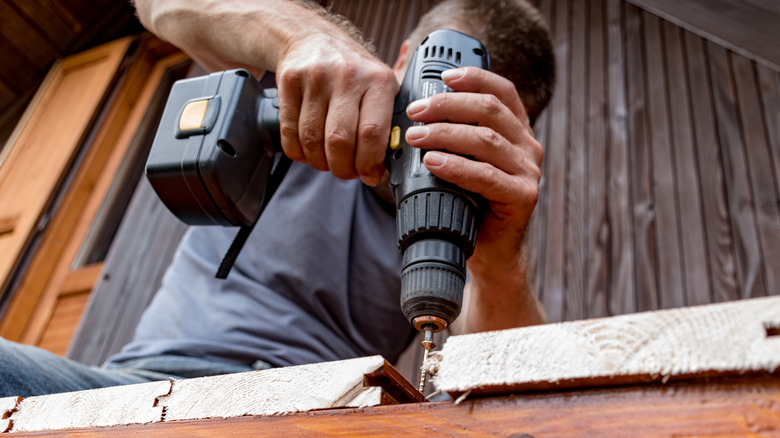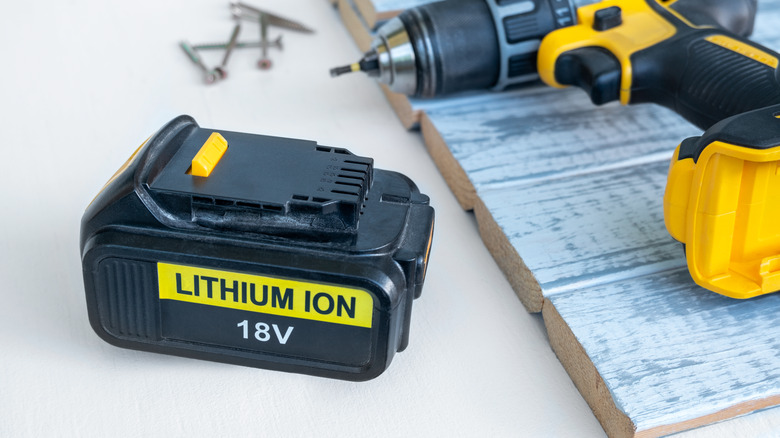Are Knockoff Power Tool Batteries Dangerous? Or A Great Deal?
Many prominent power tool brands like Ryobi, Milwaukee, and Makita use their own proprietary battery pack systems designed to store large amounts of electricity and quickly swap out when your tools suck them dry. These battery packs are generally pretty reliable, as they should be, because they can get very expensive. A single 2Ah 18V Ryobi battery pack can cost around $70, and that's at the absolute bottom of the battery rung. High-performance, high-capacity battery packs can easily run you several hundred dollars.
Considering these hefty price tags, you may be tempted to go looking for third-party manufacturers instead of buying right from branded stores. Indeed, many third-party companies manufacture knockoff battery packs that are, at least on paper, designed to be fully compatible with your power tools at a fraction of the cost. However, as is often the case with third-party knockoffs in just about any other sector, opting for knockoff power tool batteries may end up costing you more in the long run.
Substandard parts, unoptimized designs
The entire reason that third-party manufacturers can charge so much less for their power tool battery packs compared to the name brands is that they usually skimp on parts quality and safety testing. The outside of a knockoff power tool battery may look professional-grade, but on the inside, the wires holding it all together are usually surplus parts that may not be properly rated for this kind of power flow.
Speaking of power flow, knockoff batteries often use substandard lithium-ion cells in their power storage. These cells may not store energy properly, and without the kind of rigorous safety testing that accompanies name-brand battery packs, you'd never know until you plug one in. An improperly designed battery pack could either under-charge your tools, reducing their effectiveness and operating time, or, more concerningly, overcharge your tools. Overcharged tools may operate at speeds beyond their stated safe operations, which can both burn them out faster and potentially put your safety at risk.
There's also the ever-present concern of power surges and fluctuations. While name-brand batteries aren't immune to these problems, they usually have safeguards built-in that automatically cut the power flow to keep you and your tools safe. Knockoff batteries may not have these safeguards in place, which could lead to dangerous situations, including the battery catching fire.
Name-brand battery packs may be expensive, but if nothing else, consider that price a guarantee of safety and quality, something you don't get with knockoffs.

